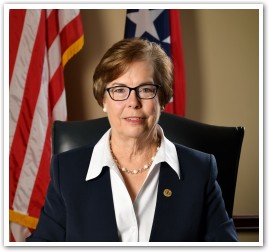A Davidson County judge on Wednesday ordered the governor’s office and the Tennessee Department of Human Resources to release COVD-19 reports it received in 2020 as part of a no-bid contract with consultant McKinsey and Co., saying the reports did not fall under a deliberative process privilege.

Nashville Post and Nashville Scene journalist Stephen Elliott has been trying for nearly three years to get the reports prepared by consultant McKinsey and Co. for the state in 2020 regarding COVID-19.
Nashville Post journalist Stephen Elliott had filed public records requests beginning in May 2020 for the reports, but the state denied access, saying the reports fell under a deliberative process privilege.
The reports were provided to help the state navigate the COVID-19 pandemic and included topics such as higher education, the state’s workforce and general responses to the emergency. McKinsey and Co. billed the state $3.8 million for its work.
After Elliott’s attorney contacted the state in August 2020, addressing the deliberative process privilege, the state agreed to release some documents in installments, but continued to withhold information through redactions and other documents all together.
State claims deliberative process privilege allows it to withhold consultant’s reports
After follow-up requests in 2021, Elliott finally, in January 2022, filed a lawsuit challenging the denials. At that point, the state again reconsidered its position and released several documents related to a workforce efficiency analysis by McKinsey, but continued to withhold others.
During the court hearing, Chancellor Pat Moskal asked the state what factors it used in deciding what to withhold and what to release.
Janet Kleinfelter, the state’s attorney, told Moskal in the hearing and in the state’s brief that the deliberative process privilege covered information in the McKinsey reports that would chill state officials from robustly discussing it if they knew the public was also allowed to know the information.
Kleinfelter said during the hearing that the deliberative process privilege is meant to prevent “Monday-morning quarterbacking” of decisions by state officials.
Judge rules reports were one-way, not deliberative

Chancellor Patricia Moskal said the state was wrong to deny access to the McKinsey reports using the deliberative process privilege. It doesn’t apply because the reports are one-way communication and do not involve deliberations among high-government officials.
In her ruling this week, Moskal took a more precise view of the deliberative process privilege.
First, she noted that courts in Tennessee have not yet applied the deliberative process privilege as an exception to the public records law although it has been applied in litigation to allow the state to withhold items from discovery.
But even if a deliberative process privilege was recognized as an exemption to the public records law, Moskal said, it wouldn’t apply to the McKinsey reports. To be covered by the privilege, the document must be “predecisional,” “deliberative” and involve communications between high government officials, she said. Factual information is not protected.
To decide whether the material withheld by the state could be covered by a deliberative process privilege, if the privilege existed as an exemption to public records law, Moskal required the state to submit withheld and redacted documents for an in camera review.
She found that documents did not consist of deliberations between government officials, but rather consisted of information to guide the decision-making process.
“…[T]he documents reviewed in this case are documents prepared by a non-governmental, third-party contractor to facilitate and guide the decision-making process, but do not reflect the actual communications with or deliberations of those government officials,” Moskal wrote in her ruling.
Documents consisted of factual information, judge says

Paul McAdoo represented Stephen Elliott and his employer, FW Publishing, in its public records lawsuit against the governor’s office. McAdoo provides legal free support to journalists as part of the Reporters Committee for Freedom of the Press’ Local Legal Initiative.
Moskal said the withheld documents consisted of “factual information compiled by McKinsey and provided to the (Unified Command Group) regarding the pandemic (such as progression of new cases, hospitalizations, deaths, etc.), a process for identifying strategic issues and a workshop process for scenario planning, including potential scenarios, questions for consideration in planning strategic objectives, resources to be assessed, potential consequences, and potential action plans based on practices utilized by other states.”
The Uniform Command Group was a group of state officials coordinating the COVID-19 response.
“These documents contain one-way communications from McKinsey to the (Unified Command Group) to guide the planning process and do not reflect actual communications with high governmental officials or the content of deliberations had, advice given, or decisions made.”
She also noted that the deliberative process should be “applied cautiously,” quoting a previous appellate court ruling, “lest it ‘become the exception that swallows up the rule favoring governmental openness and accountability.”
The Nashville Post has not yet received the remaining documents. The state could appeal the ruling.
Elliott and his employer, FW Publishing, LLC, were represented by Paul McAdoo, an attorney with the Reporters Committee for Freedom of the Press. McAdoo represents journalists in Tennessee as part of the Local Legal Initiative of the Reporters Committee.
FW Publishing is the parent company of four Nashville and Williamson County area publications: the Nashville Scene, Nfocus Magazine, the Nashville Post and HomePage Media Group.




